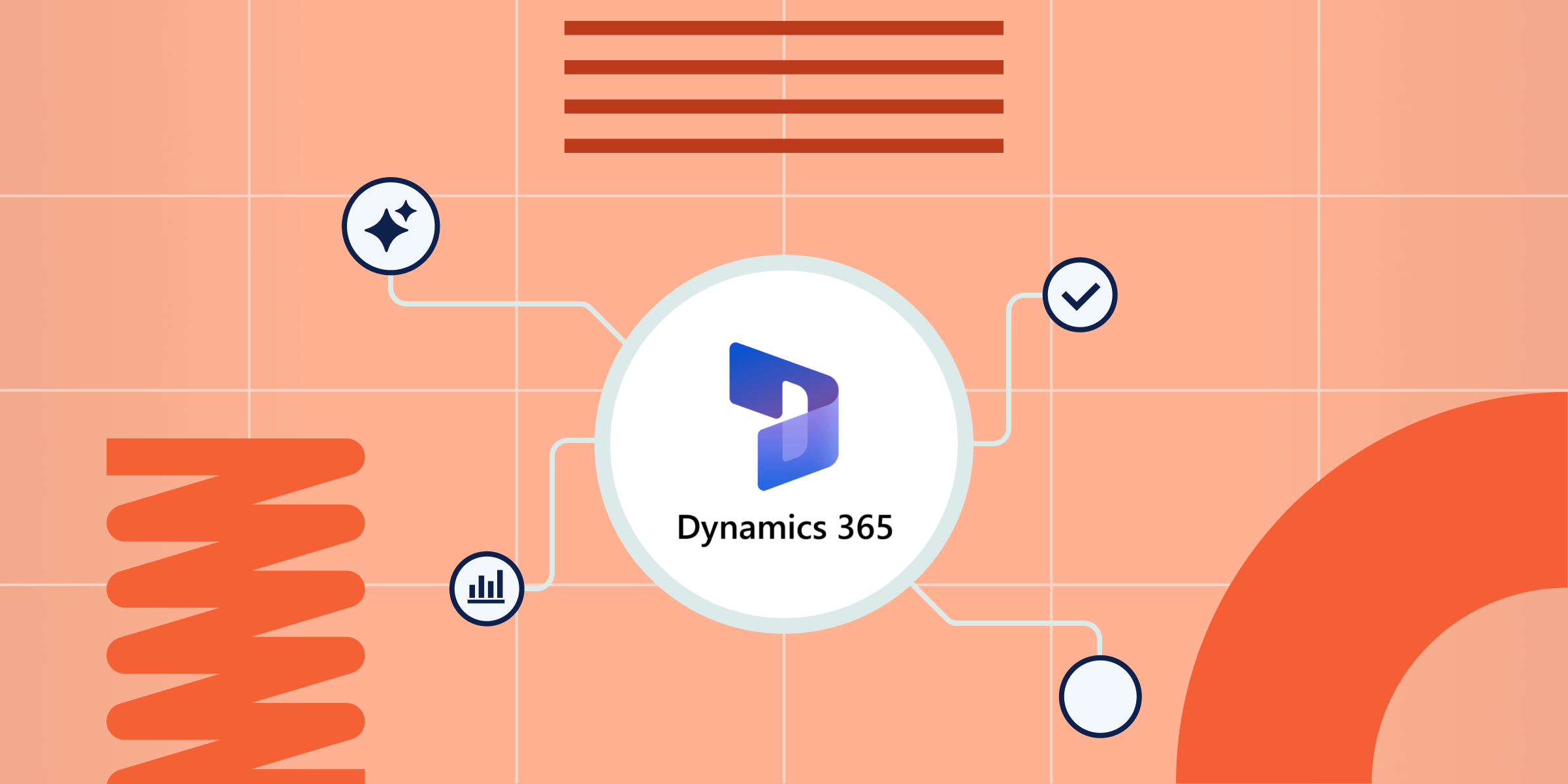What is CPQ? An Expert Guide (Without the Jargon)

There’s a significant amount of non-selling work involved in B2B sales. It sounds counterintuitive, but consider all the administrative tasks and information gathering that impact revenue and reduce the available time you have for engaging with prospects.
HubSpot’s latest Sales Trends report found that salespeople spend two hours a day actively selling. That’s it. Two hours. The rest of the time is spent on non-selling tasks.
This, combined with the increasing complexity of a growing business, can kill sales momentum and drastically slow down the quoting process. Whether you’re aiming to steadily increase your customer base or rapidly scale in a new market, adding new processes and infrastructure can lead to overwhelm, especially when legacy processes and sales tools start to lag. By automating these tasks, you can free your sales team from the endless burden of admin.
This is where Configure, Price, Quote (CPQ) software comes in. CPQ streamlines and automates sales processes, making it easier to handle complex product configurations and pricing
What is CPQ?
CPQ stands for Configure, Price, Quote. It typically refers to software that lets companies with complicated products or lots of product variations quickly populate quotes without manually selecting every relevant configuration.
For example, if you sell customized computers with various complex configurations—like different processors, memory, or storage—you can add each element to a quote and get a total price in just a few clicks. There’s no need to manually select and price up each computer part, which can be time-consuming and lead to mistakes.
The best CPQ solutions offer more than just basic efficiency gains. Many CPQ solutions provide the capabilities needed to enhance the customer experience, improve analytics and reporting, and empower sales teams to do their jobs more confidently. In fact, some Experlogix clients leverage CPQ to enable full-fledged digital transformations and maximize their investments in upgraded CRM or ERP platforms.
Configure
For many organizations, configuring quotes can involve a lot of complex steps, several people, and manual processes, in both the actual configuration process and in follow-up tasks—like getting approvals before sending it to a customer.
CPQ software simplifies complex product configurations by applying configuration logic to product data, which can be pulled from a CRM, ERP, or other system. The exact way your processes change will vary a little depending on the CPQ solution you choose. However, the general idea is to replace multiple spreadsheets, the inclusion of other individuals, and manually copy-pasting information with a more intuitive, integrated interface.
In Experlogix CPQ, both the administration interface and product configurator are designed to be highly accessible to business users.
Rather than requiring coding, Experlogix lets you build your configuration rules using logic similar to what you’d use in Excel. But, instead of restricting you with rigid, pre-built templates or building blocks, you can completely tailor the rules to fit your business and the teams that need to use the software.
Advanced features like guided selling can take this even further, by providing recommendations for upsells and cross-sell opportunities throughout the configuration process. This shortens the time it takes for salespeople to reach their full potential since CPQ has all the information they need to sell effectively. Instead of relying on tribal knowledge, you have the important information built right into the process.
Price
Pricing can be a headache for many organizations, especially those that rely on complex formulas, offer a variety of products or services, or sell in different regions. Pricing in CPQ software takes away the need for manual calculations and pricing spreadsheets, pulling the latest information directly from your CRM or ERP platform.
This ensures your orders use all the latest pricing information and that this pricing information is correct. For organizations that offer products in different regions and different currencies, as well as products that rely on advanced formulas, this can translate to considerable time savings.
CPQ can also help remove the headaches in related processes, like discounting. For example, the software solution can automatically send requests for discount approval to the appropriate stakeholders who can then sign off with just a click.
Quote
The quoting component of CPQ software helps organizations automate the steps between configuring the product and sending the customer a quote. The sophisticated quoting function in a CPQ solution can mean the difference between losing and winning a deal—it’s what determines the quality and accuracy of the quote that the customer ultimately sees, after all.
Automating the quoting process ensures all quotes look professional and are consistently on brand.
Benefits of CPQ Software
While sales efficiency is one of the biggest benefits of CPQ software, it isn’t the only one. The right solution has the potential to drastically transform processes and provide benefits across the organization, from increased revenue to greater visibility into sales performance…and much more.
Let’s take a look at some of these major benefits and explore the role that CPQ can play in transforming the organization.
Overcome Common Sales Challenges
One of the primary obstacles in sales is the complexity of product configurations, especially for businesses with a catalog of customizable products. CPQ software simplifies this by providing an intuitive platform where sales teams can quickly configure products according to customer needs, ensure all specifications are correct and feasible, and that all prices are current and accurate.
Improve Sales Staff Efficiency
CPQ software integrates with CRM and ERP systems to get a 360-degree view of your products, pricing, and customer preferences. This creates a seamless flow of information between platforms that ensures all departments are well-aligned. As a result, sales staff can quickly grab relevant information, populate quotes, and send them off in minutes rather than hours. They no longer have to wait for other departments to return calls or send vital information.
Send More Accurate Quotes
Humans are great at a lot of things, but even the most detail-oriented person in the organization is bound to make a mistake at some point.
CPQ software makes quoting more accurate by automating the process of transforming a quote into an order. CPQ software inspects every selection made by a salesperson and compares it to pre-defined rules. So, if a certain combination of components is incompatible, or if a certain product can’t be sold in a specific region, it’ll be impossible to select it.
This not only reduces waste by reducing the number of quotes that must be revised, but it also creates a more positive customer experience. As a result, prospective customers won’t experience delays from inaccurate orders or receive the incorrect product. In other words, CPQ solutions let you capture lost revenue, avoiding the rework involved in correcting quotes or sending the correct product to a customer after an incorrect one has been shipped.
In Experlogix CPQ, it’s also easy to create manufacture-ready configurations with bills of materials and routings, so that production teams have all the information they need to manufacture the product with confidence that it’s accurate.
Convert More Leads
The precise nature of CPQ software helps build customer trust and reduces the back-and-forth often associated with price negotiations. It also expedites the quote generation process, allowing sales reps to deliver professional and accurate prices quicker than ever. Customers no longer have to wait hours—or worse, days—to receive a quote. As a result, sales teams can strike while the iron’s hot to convert customers when they are ready and raring to buy.
Generate Smarter, Faster Quotes
CPQ software centralizes product information and pricing rules, eliminating the need for manual calculations and research. This means sales teams can quickly configure even the most complex products and services according to specific customer requirements.
Most CPQ software uses intelligent algorithms to analyze customer data, historical sales information, and market trends to recommend the most relevant products, pricing options, and upsell opportunities for each customer. Sales reps can use these insights to tailor quotes and position themselves as trusted advisors
Faster Sales Cycles
Removing manual work from the equation impacts the sales process in a variety of ways, but, ultimately, the efficiency gained translates to closing deals faster.
It’s no secret that today’s customers highly value speed. CPQ makes it possible to meet and exceed those expectations without sacrificing anything that differentiates you from the competition. In fact, you might be able to use the extra time to better engage your customers. For example, many Experlogix clients use the time saved to provide customers with more information about the products or enable their sales team to be more readily available to answer customers’ questions.
Increased Deal Size
Because CPQ software helps sales reps quickly configure complex product bundles and services, they can demonstrate value and address unique customer requirements with ease. The dynamic pricing capabilities equip salespeople with the tools they need to apply strategic discounts and promotions to maximize deal size without actually sacrificing profitability.
Fewer Errors and Delays
CPQ software automates pricing calculations, accommodating discounts, special offers, and even the most complex pricing rules. This reduces the risk of human error and ensures consistency across all quotes. With unrivaled access to data from other business platforms, sales teams can get the information they need in seconds to deliver quotes accurately and ahead of time.
Easy Adoption
In every organization, there is a lot of knowledge that isn’t written down anywhere because it exists in people’s heads. Whether it’s the nuances of a technical product or a particular sales strategy, this is the information that veteran salespeople have from selling your products or services; the stuff that takes a while to learn.
With CPQ software, you can build that knowledge directly into the system, so that even newer salespeople can take advantage of your institution’s collective know-how and sell your products more confidently. This increases revenue by increasing the effectiveness of everyone on the team.
CPQ in Action: How CPQ Software Works For Different Industries
CPQ software can simplify even the most complex product configurations in any industry.
What Businesses and Industries Use CPQ?
While it has a considerable audience in the manufacturing industry, CPQ software provides advantages for any business that provides configurable products or services, regardless of industry. This makes CPQ valuable in areas including professional services, renewable energy, research, media, and many more.
CPQ for Industries
CPQ for High-Tech Manufacturing
Organizations in high-tech industries rely on product offerings with exacting specifications, and many of the materials used must have precise physical properties…meaning that the cost of even small errors can be significant for both manufacturers and their customers.
At the same time, sales teams in these industries must learn a lot of information for products that are at the forefront of innovation around the world. Finally, the complexity of configurations and pricing in this sector often means that it can take hours to put together a single quote.
CPQ software enables high-tech manufacturers to institutionalize some of the knowledge that separates new and experienced salespeople, while also making the process simpler and easier to follow…this makes it possible to rapidly take advantage of new opportunities as market shifts occur (in a very disruptive market).
For example, one client reduced the time it takes to create a customer-ready quote from several hours to a few minutes using Experlogix CPQ for Microsoft Dynamics 365.
CPQ also adds a lot of clarity to the sales process, by allowing sales to show side-by-side product configurations easily, so it’s easy to compare prices and features between multiple variations. This means that customers have a clearer idea of what they’re buying, so fewer miscommunications and incorrect products are delivered.
CPQ for Agriculture
Agricultural products, ranging from seeds and fertilizers to machinery and irrigation systems, often require intricate configurations tailored to specific farming needs — which can vary by the type of crop grown, soil used, typical weather and a wide range of other factors.
By centralizing product specifications and customization options within a CPQ platform, organizations in agriculture can ensure consistency and accuracy across sales channels.
Whether it’s selecting the right seed variety or configuring a precision farming solution, CPQ software empowers sales representatives to offer personalized recommendations that align with customers’ requirements and generate awareness for the breadth of the company’s products.
CPQ for Healthcare
In healthcare, patients with a variety of conditions depend on custom products that are highly tailored to their needs — ranging from factors like age and body shape to stylistic preferences. For example, a medical footwear manufacturer needs to make products that specifically fit a patient’s body while still feeling comfortable.
These and many other scenarios often require individual patient consultations and measurements, so taking a long time to create an order significantly impacts the patient experience. Plus, any order errors could lead to a patient’s care being delayed or lower quality than expected.
Improving the ordering experience will both drive more efficiency and help create a lasting positive impression for patients and providers alike. For example, a medical device manufacturer would have more time in its process to answer customer questions and ensure they know how to best use their products. This is also a great area for automating the quoting process and related documentation.
If we go back to the medical device manufacturer example, this could translate to being able to provide more follow-up documentation like care and maintenance instructions or relevant health reminders.
CPQ for Data and Research
Configuring data and research products can be a highly complex task, requiring knowledge of complicated pricing structures, that often vary by the type of data or even particular data set being sold. These organizations also tend to offer an array of services, such as expert consulting, to help customers get the most out of their products and research.
For instance, a market research firm may offer access to real-time data tracking advertising, custom market research reports, as well as syndicated research reports. Each of these could rely on different pricing strategies, have different service pairings, and rely on a lot of custom formulas.
CPQ software can dramatically reduce complexity for these organizations; integration with ERP systems is especially important here so that up-to-date pricing information can be pulled automatically into a configuration.
CPQ for Professional Services
CPQ software allows professional services such as legal firms, accountants, and digital marketing organizations to calculate the cost of an engagement based on the number of hours needed, the cost of labor, and the cost of materials.
For example, an IT consulting firm might use a CPQ system to quickly generate accurate quotes and proposals for potential clients. They could use the data stored in the CPQ to define different service offerings, such as app development, cloud migration, or cybersecurity consulting, as configurable products or bundles.
Looking for more ways to use CPQ? Check out our CPQ client success stories.
What to Expect When You Use a CPQ Solution
- CPQ technology saves costs and generates better revenue by speeding up the quoting process, reducing time wasted collecting manual pricing data, and increasing deal size.
- CPQ will empower your sales team to sell with confidence by giving them all the information they need right at their fingertips.
- CPQ helps grow sales teams because by optimizing your quoting process and freeing up time that sales staff can spend finding new leads.
- CPQ technology manages proposals, quotes, and contracts seamlessly, creating a much better customer experience.
Integrating CPQ with Business Technologies
Integration is a key part of what enables CPQ to provide the value that it does. Although some CRM systems come with basic CPQ software, they don’t all provide the same level of customization or depth as a standalone CPQ solution that integrates with all your key platforms.
Integrating CPQ with CRM allows organizations to gain a better understanding and handle of their customer data. In addition to efficiency, this helps to provide visibility and ensure that all the right information makes it to the appropriate place. Integration with your key systems also helps to ensure that only products that can actually be built are sold; when relying on manually copying/pasting information, it’s easy for even veteran salespeople to add configurations that include incompatible components. Instead, CPQ can use information from your ERP to prevent incompatible components from being put into a configuration together.
Integrated CPQ systems can leverage CRM or ERP data for rules in configurations. With Experlogix, for example, it’s easy to customize product recommendations and requirements by different regions — this is invaluable for offering accurate, customized quotes. For example, an organization that sells in different areas across the United States or in different countries could build customized rules for selling product components based on where the customer lives.
This is valuable, not only for elevating the customer experience but for ensuring compliance with specific state regulations. Products with variable components based on regional weather trends can automatically be customized based on what the weather is like in a customer’s region. Similarly, an integrated system can prevent products from being sold in regions where it’s against regulations, which is helpful in areas like gambling, finance, and healthcare, where regional differences can drastically impact regulatory compliance.
There are three core business processes and technologies that CPQ is often integrated with:
- CRM systems
- ERP systems
- Contract management
CPQ vs CRM: What’s the Difference?
CPQ software is often integrated with CRM systems but it has a different functionality and purpose. CRM systems manage your interactions with current and potential customers, focusing on sales and marketing to enhance customer relationships and drive business growth. CPQ specifically addresses product configuration, pricing processes, and the generation of accurate sales quotes.
While CRM systems track customer data, manage sales pipelines, and automate marketing campaigns, CPQ solutions streamline the sales process by creating accurate product configurations and standardized pricing.
CPQ vs ERP: What’s the Difference?
Similarly to its relationship with CRM systems, CPQ software can be integrated with ERP solutions. ERP systems are comprehensive platforms that manage and automate multiple back-office tasks, such as finance, human resources, and supply chain management. CPQ software focuses specifically on the pricing and quoting process to ensure you generate precise, professional quotes.
The Benefits of Combining CPQ and Contract Management
When working in tandem, contract management—the systematic process of managing contract creation, execution, and analysis—and CPQ help you maximize operational efficiency by ensuring you send accurate quotes that meet contractual obligations.
The Impact of CPQ on Profitability and Business Operations
At a very basic level, the ROI of CPQ software is easy to estimate:
- Estimate the average value of each quote.
- Estimate the total number of quotes you generate per month/year/etc.
- Increase quote value by 20%.
- Increase the number of quotes you produce by 25%.
- Multiply the new quote value and number of quotes produced.
It’s important to note, however, that this is only the beginning. The impact of CPQ software extends beyond sales operations, influencing various facets of business. With seamless integration capabilities, CPQ aligns sales workflows with other critical functions such as inventory management, order fulfillment, and financial systems. This integration fosters collaboration across departments, enables you to scale more efficiently, and, ultimately, improves the customer experience.
CPQ also provides benefits at every stage of the process, so you get direct ROI in multiple ways. For example, one Experlogix client reduced the number of quote revisions by 43%, in addition to improving the sales productivity of putting together a quote in the first place.
Here are several more ways that it can positively affect your business:
- Streamlining the ordering and configuration process.
- Making it easier to create data for new products.
- Accelerate approval workflows like discounts and engineer change requests.
- Reducing the amount of rework that needs to be done later.
- Drastically reducing time wasted on manual quotes.
- Providing more visibility into sales performance via improved analytics and reporting.
In evaluating intangible benefits, sales organizations must consider the qualitative aspects of CPQ software implementation. Enhanced customer experience, improved sales effectiveness, and strengthened competitive positioning are invaluable assets that contribute to long-term business growth.
Choosing the Right CPQ Solution
CPQ software represents a major business investment, so it’s important to select the solution that is truly the best fit for your needs and think about a few things that’ll help implementation go smoothly.
While there’s no one-size-fits-all set of recommendations to follow, there are some key areas of your business that you should be thinking about:
- What problem are you trying to solve? Are you trying to simply improve speed and accuracy, or are you looking to overhaul your processes and systems completely?
- Who will be using the software? Will it just be your internal sales team using the solution, or will other teams also use it? If it’s the latter, you’ll need to consider the systems and software tools those teams use and ensure the solution you choose can integrate with them.
- What is your product or service ecosystem like? Consider the number and types of products you offer, how the different products are sold together and what currencies you need to support.
- What are your reporting needs like? One of the most common challenges we hear from clients is: They have tons of data and no easy way to use it. The good news is that CPQ software may be able to help with that, too. By bringing together data from CRM and ERP, and combining it with the logic in CPQ, organizations gain more visibility into sales performance, product configuration trends, profitability and customer behavior.
Guidelines for Developing CPQ Requirements Documentation
Understanding the needs of different stakeholders is a crucial step in choosing the right CPQ system for your company.
Here’s how to discover what your teams need:
- Define your business objectives. Identify specific goals, such as reducing quote turnaround time or improving pricing accuracy.
- Engage stakeholders. Identify who’ll be using the solution, including sales, IT, legal, and customer service teams.
- Document your current process. Map out your existing quoting strategy to understand how it works and to spot any bottlenecks or areas for improvement.
- Define your functional requirements. Work out product configurations, pricing rules, and your requirements for quote templates and branding.
- Specify your technical requirements. Outline any integration needs with business technologies such as CRM and ERP systems.
- Define your performance metrics. Decide on the Key Performance Indicators (KPIs) you’ll use to determine the success of your CPQ solution.
Once you understand the needs of each team and have collected their requirements, you can create a requirements document that you can use as a checklist when evaluating different CPQ solutions.
At the heart of selecting the best CPQ software is the core business problem you need to solve. Involve end users in the selection and requirements process. Not only can they ask the tough questions of vendors, but they can also bring a lot more specific process and/or product knowledge to the table. The scale of implementation also matters, so it’s important to consider the total number of users, and whether any external partners or customers need access — this will inform decisions like how important it is to be able to create and manage dealer and customer portals.
Every business has unique products, services, and pricing models, and the CPQ solution should be able to adapt to these specific needs. Organizations should assess whether the software allows for easy configuration of product catalogs, pricing rules, discount structures, and quote templates.
It’s also about more than purely technical and process considerations. When thinking about your products or services, how much knowledge does a salesperson need before they can sell effectively? Most organizations rely on some knowledge that is built through experience and learning from other people — features like guided selling in CPQ allow organizations to build this kind of knowledge right into the process.
Ultimately, the best CPQ vendor is the one that best fits your unique business needs.
Spend Less Time On Non-Selling Tasks
Remember we said the majority of sales teams spend their time on non-selling tasks? CPQ is changing that. It’s transforming B2B sales by streamlining sales processes, reducing administrative burdens, and improving overall efficiency in multiple sectors—from high-tech manufacturing to healthcare and education.
Released from the shackles of manual quoting, sales folk can focus on engaging with prospects to close bigger, better deals. And, by integrating CPQ software with other critical business technologies (CRM and ERP, we’re looking at you), sales teams suddenly have access to a seamless flow of information. This creates alignment between all stakeholders and ensures products configured can actually be produced (which avoids costly errors and delays).



